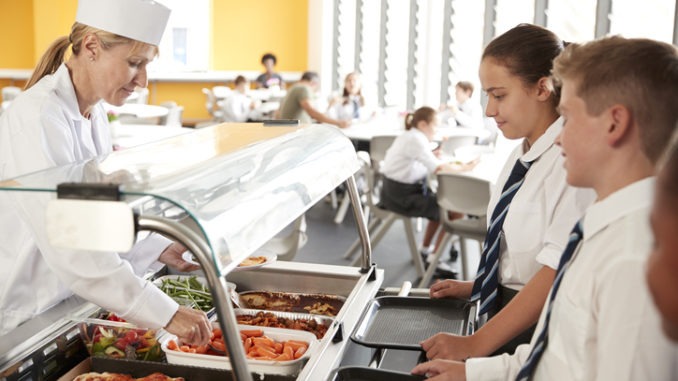
Free school meals should be permanently extended to the children of migrants in England who are currently ineligible for public support, charities say
CREDIT: This is an edited version of an article that originally appeared on BBC news
During the coronavirus outbreak the free school meal scheme has temporarily included some pupils whose families have ‘no recourse to public funds’ (NRPF). NRPF status is attached to some migrants as a condition of their right to remain in the UK – generally those who have not yet qualified for permanent residency – and prevents them from receiving most government-funded benefits. Sixty organisations have written to the education secretary asking him to permanently extend the scheme.
The government has already made a u-turn on providing free school meals outside term-time; this came after an intervention, in June, by Manchester United footballer Marcus Rashford who campaigned for the government to offer free school meal vouchers over the summer holidays in England.
Now charities and trade unions have demanded that ministers change their policy again, ensuring that children from low-income, migrant families with no recourse to public funds are added to the list of those eligible for free meals when schools reopen.
In a letter to education secretary Gavin Williamson the organisations, which include the Children’s Society, Unison and Action for Children, said they ‘applauded’ the decision to extend free school meals to some NRPF families in April. However, they added that they were ‘extremely concerned by the government’s intention to stop providing free school meals to these children in the near future’.
‘The progress the government has made by extending this vital lifeline to NRPF families will be lost unless you make this change permanent,’ the letter says.
Analysis by Oxford University’s Migration Observatory suggests that more than 175,000 children in the UK are living in NRPF families. Sam Royston, director of policy and research for the Children’s Society, said that these figures show the number of children affected was rising, adding that “Whether a child is able to eat should not depend on their parents’ immigration status.”
Meanwhile, a law firm has also prepared a possible legal challenge, arguing that excluding poor children from free school meals because of immigration status is discriminatory, and a breach of human rights. Matthew Gold and Co Ltd has been instructed to challenge the eligibility criteria for free school meals.
In England, about 1.3 million children claimed free school meals in 2019 – about 15% of state-educated pupils. Children of all ages living in households in receipt of income-related benefits may be eligible – from government-maintained nurseries through to sixth forms. Eligibility varies slightly between England, Wales, Scotland and Northern Ireland because the nations set their own rules.



Be the first to comment